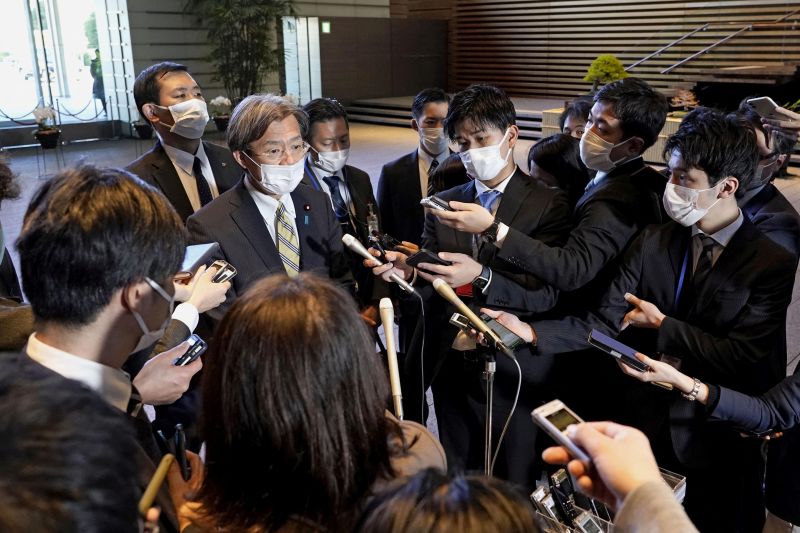
Undocumented political funds scandal shakes Japan's ruling party

Japan's ruling party, the Liberal Democratic Party, is embroiled in a major scandal involving significant amounts of unrecorded political funds, marking one of the most significant controversies it has faced in years
The Liberal Democratic Party of Japan is currently embroiled in its largest scandal in many years, related to millions of dollars in unreported political funds. Accusations have been made against two of the most powerful factions within the LDP, which has maintained almost uninterrupted control since its establishment in 1955. The accusations include improper reporting of financial activity and the alleged redirection of political funds to lawmakers as kickbacks.
Tokyo prosecutors deployed over a dozen investigators to raid the offices of the Abe and Nikai factions of the party on Tuesday. The Abe faction, formerly led by the late former Prime Minister Shinzo Abe, is under suspicion for allegedly failing to report as much as 500 million yen ($3.5 million) over a five-year period, as reported by NHK, a public broadcaster.
The Nikai faction allegedly failed to report donations of more than 100 million yen ($690,000).
The failures could amount to a breach of the countrys political funds control law, NHK reported.
According to sources, the public broadcaster reported that both factions reportedly provided kickbacks to certain members of parliament from the profits of unrecorded fundraising sales. Chief Cabinet Secretary Yoshimasa Hayashi announced at a recent press conference that Prime Minister Fumio Kishida will take necessary action to ensure transparency and accountability.
"The government is committed to addressing both domestic and foreign policy issues and delivering results in a timely manner to prevent any disruptions in national politics," he stated.
To mitigate the impact, Kishida has replaced four cabinet ministers, but recent polls indicate that this action has had little effect on regaining public support.
A survey by the Mainichi Shimbun newspaper found disapproval levels for the cabinet were at 79%, the highest since the monthly poll began in 1947.
Other polls painted a similar picture.
"Professor Masaru Nishikawa from Tsuda University in Tokyo stated that, based on NHK data, the Kishida administration's approval rating has dropped to 23%, the lowest level since 2012. He mentioned that this scandal is expected to have a substantial impact on the cabinet."
Japan's Minister of Reconstruction, Kenya Akiba, announces his resignation at Prime Minister Fumio Kishida's official residence in Tokyo, Japan on December 27, 2022, as seen in this photo taken by Kyodo. Mandatory credit Kyodo via REUTERS. (Kyodo/Reuters)
Fourth Japanese minister steps down from Prime Minister Kishida's new cabinet
Despite Japan's 18th place ranking out of 180 countries in the Transparency International Corruption Perceptions Index 2022, financial scandals among government officials are still not uncommon. One notable scandal from the late 1980s involved politicians receiving shares and favors from a human resources company's subsidiary, casting a shadow on the country's governance.
Even so, this scandal is particularly notable for the significant amounts of money involved and the systematic and routine nature of the kickbacks, according to Paul Nadeau, an adjunct assistant professor specializing in Japanese politics at Temple University's Tokyo campus.
Nadeau also pointed out that the scandal was remarkable because the officials involved were not just insignificant figures, but major names who were once seen as potential leaders of the country.
However, Nadeau cautioned that it was premature to determine the extent of the scandal's impact on the LDP, citing the historical difficulty opposition parties have faced. The LDP has maintained its control, aside from brief periods in 1993 to 1994 and 2009 to 2012.
Nadeau explained, "The public's reaction appears to be a mixture of frustration and resignation, expressing discontent with the scandal while not anticipating significant improvement from the political leadership, and holding little hope for better alternatives."













